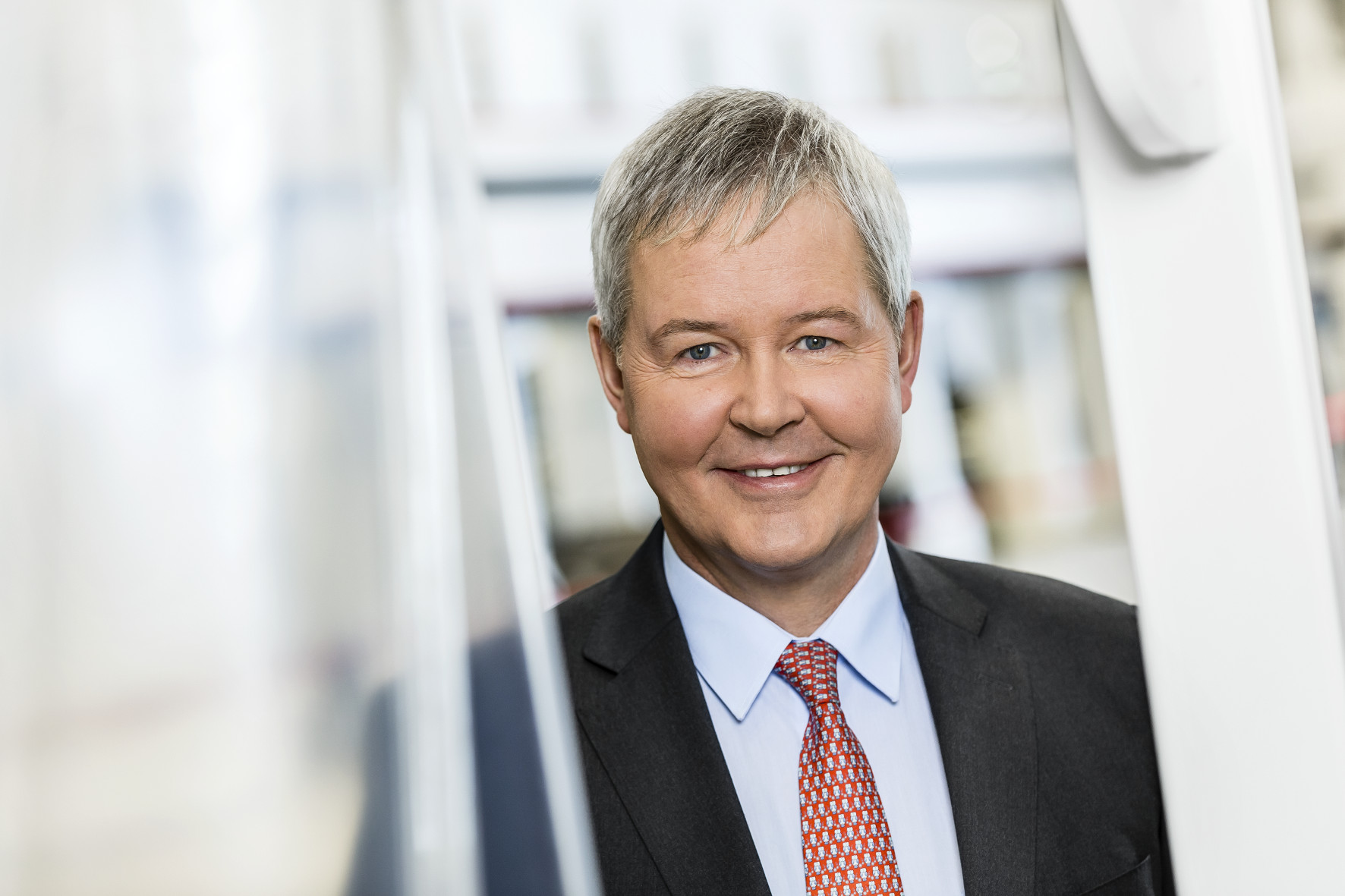
“Mechanical engineering can make a huge contribution”
• Efficiency, functionality and recyclability must be compatible
• Brand owners accelerate the process towards circular economy
• New solutions for more easily recyclable products will be presented at K 2019
Plastics have been publicly discredited. What does that mean to a machine manufacturer?
Peter Steinbeck: We are part of the value-added chain, for this reason the bad image also concerns us. As machine manufacturers, we are also shocked when we see pictures of oceans littered with plastics, and naturally we are in favour of environmental protection. Despite the challenges we must not ignore the great benefits of plastics – and in particular those of flexible packaging. Our industry is jointly required to further develop plastics in its various fields of application, to face the challenges and to enhance the strengths. With our technology in the field of flexible packaging, we, as machine manufacturers, can make a huge contribution.
Steinbeck: We see this as a two-part task. On the one hand, we must try to distinctly increase the recycling shares in developed markets. Political regulation above all within the EU is definitely useful because it provides a secure framework. In terms of technology, efficiency, functionality and recyclability must be compatible. On the other hand, those countries must be supported that do not have functional waste managements and are therefore responsible for the pollution of oceans. We must help them introduce collection systems and also recognise plastics as recyclable material that can be used repeatedly.
Steinbeck: I think that the German and European mechanical engineering sector is very well positioned and that we can present solutions that not only enable resource-friendly manufacture of plastics but also recycling. Moreover, we already have solutions for comprehensive waste management. And we can show that all this is already working well here in Germany and in Northern Europe. These solutions can be perfectly transferred to other countries such as Indonesia, Vietnam or the Philippines, which are still behind in this respect.
Circular economy is a topic that is by all means present outside Europe, for example in China.
Steinbeck: I have the impression that the topic circular economy is already taking root in the minds of Chinese people. This was clearly noticeable at the conference. Brand owners make a large contribution by prescribing recycling shares or by demanding recyclability of packaging from suppliers. This will speed up the process. If there are regulations for recycling, there must be markets and infrastructures for recycled materials – also in the food sector. This is certainly a great challenge, but here the German mechanical engineering industry as technology leader can already today make its contribution. What is important is this: Plastics have value even beyond the useful life of their first application.
Steinbeck: This is a concern we do not have. Our customers and we ourselves have been aiming at using as little material as possible for years, using film as thin as possible and wrapping solutions for flexible packaging which is as resource-friendly as possible. We also think that not everything must be wrapped. But the problem in the food sector is that around one third of all food produced worldwide deteriorates because of bad packaging. You have to decide on a case-by-case basis what is best, throughout the whole process at that. If a cucumber picked by the local farmer goes to the market and is bought by the customer on the same day, everything is fine. In that case we would be the last ones to say the cucumber should be wrapped. But if you buy vegetables from Spain and a large part of it goes bad before consumption, rejecting plastic packaging will not be a good solution.
Steinbeck: You have to ask yourself has technology reached the end of its development and has everything been invented that can be invented in this field? That is certainly not the case. There are already now compositions of mono-material that are better recyclable and that have the same barrier function that multi-layer films have. At K 2019, these and other solutions will be introduced. Apart from mono-materials there will be materials allowing better dissolution of compound structures. We also have the possibility today to re-use compound structures at least for certain end products. And there is chemical recycling whereby practically all plastic waste is boiled up into a kind of primordial soup to be restructured into new plastics chains. This development is still in its infancy. We are convinced that strict regulations for recycling shares in plastics products would give the current innovation boost a concentrated direction, so that further solutions would be found.
—————–
In our world, plastics are indispensable. The downside is the littering. Carelessly discarded plastics products condense to form thick carpets, not just on rivers and seas, but also on land. A complete circular economy could prevent this evil and put the focus back on the benefits of plastics. In order for this to be a success, we all need to work together: processors, raw material manufacturers, mechanical engineers and recyclers, but also brand owners, end consumers and politicians.
VDMA will shine the spotlight on circular economy at the leading K 2019 trade fair in Düsseldorf in October and show how closed loops can work effectively. Throughout the process, stakeholders will be having their say in a series of interviews in the run-up to this international industry event.

About VDMA Plastics and Rubber Machinery
More than 230 companies are members of the association, covering more than 90 percent of the industry’s production activities in Germany. Ten percent of our member companies come from Austria, Switzerland and France. The German member companies represent sales of EUR 7 billion in core machinery and EUR 10 billion including peripheral technology. Every fourth plastics machine produced in the world comes from Germany; the export rate is 70 percent. Ulrich Reifenhäuser, Member of the Management Board of the Reifenhäuser Group, is the chairman of the association.